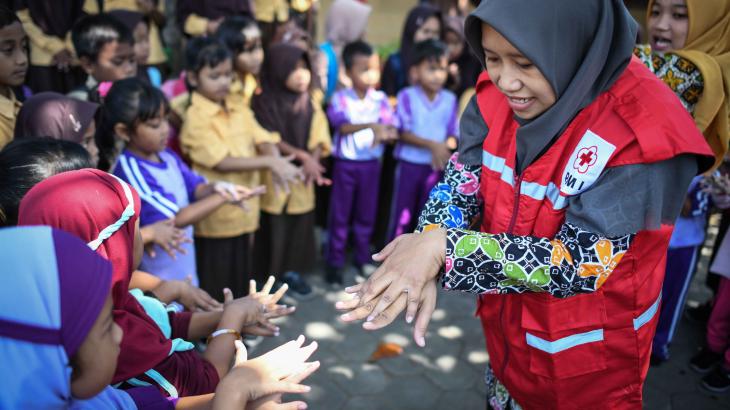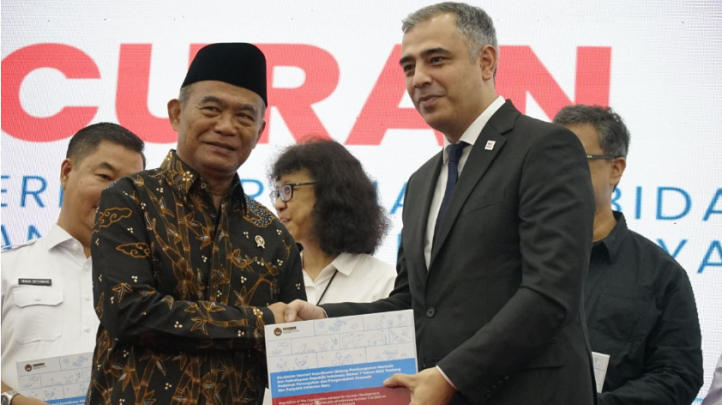Palang Merah Indonesia (PMI)
Indonesia Red Cross
Dates of implementation: 2019 - present
Settings: Both rural and urban
Context: Preparedness
Data collection system: Started with KoBo reporting system and transitioned to SatuSBM in 2022-2023
Partners: Australian Red Cross, DFAT, USAID, International Federation of Red Cross and Red Crescent Societies
Indonesian Red Cross initiated Community Based Surveillance (CBS) with the support by IFRC and USAID in 2019. This initiative started in 8 villages, and is now being implemented across several districts within Indonesia with additional support by Australian Red Cross and DFAT.
Between 2019-present community-based surveillance (CBS) has been an effective approach in alerting, prioritizing and responding to multiple health risks. To respond to health emergencies efficiently, coordination between varying government counterparts such as Ministry of Health and Ministry of Agriculture is essential. CBS provides a critical link between communities and health facilities, extending the reach of the national surveillance system for faster reporting, faster response and actions, and potentially fewer cases and fewer deaths.

Government coordination & CBS Sustainability
Since 2018, the Indonesian Red Cross has worked with the government to promote community-based surveillance. In November 2022, a new community-based surveillance regulation (Permenko Number 7 of 2022) was approved by the President of Indonesia and launched by the Coordinating Ministry for Human Development and Cultural Affairs in March 2023. It will serve as the legal framework for implementing community-based surveillance throughout the country, particularly for preventing and responding to epidemic and pandemic risks such as zoonotic and emerging infectious diseases. This is an important step forward for the Red Cross and other actors to scale up local epidemic preparedness in the country.
Satu SBM
Digital innovation to support community-driven actions
SatuSBM has been developed based on several other systems including the open-source coding for the Nyss platform and adjusted to meet the specific needs and requests of PMI and the Indonesian government. The resulting solution is a platform that has the potential to link CBS alerts directly with the various existing surveillance systems used by the Ministry of Health and Ministry of Agriculture – fully integrating through a One Health approach.
Watch the video to learn more!
Community Epidemic and Pandemic Preparedness Programme (CP3)
Learn more about how CBS is integrated with other activities in the Community Epidemic and Pandemic Preparedness Programme.
Additional resources and publications
- SURVEILANS BERBASIS MASYARAKAT (short case study in Bahasa)
- COMMUNITY-BASED SURVEILLANCE INDONESIA CASE STUDY (English)
- EPIDEMICS THAT DIDN’T HAPPEN: Dengue in Indonesia
- STRONG RELATIONSHIPS WITH COMMUNITY AND GOVERNMENT PARTNERS ARE KEY IN EPIDEMIC PREPAREDNESS AND RESPONSE
- COMMUNITY-WIDE RESPONSE: A turning point for a man and his village in rural Indonesia


